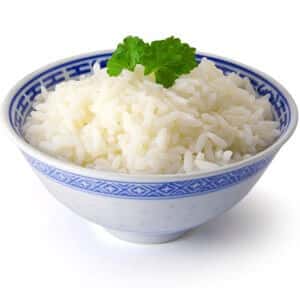
The glycemic index of a food tells us how quickly it raises blood sugar. The glycemic load of a diet also takes into account how much blood-sugar-boosting food is being eaten. Refined grains usually have a high glycemic index. Where they provide a substantial proportion of calories, the result is often a high glycemic load. In the US, refined grains are generally fortified with B vitamins. In other places, however, they may not be. Research suggests that a B-complex supplement might help prevent stroke in those regions.
Can B Vitamins Reduce the Risk of Stroke?
A meta-analysis of 14 randomized controlled trials has revealed that vitamin B complex supplements may reduce the risk of stroke (American Journal of Clinical Nutrition, March 2024). Among more than 76,000 participants in the combined trials, vitamin supplements containing modest doses of folic acid, vitamin B12 and vitamin B6 reduced the risk of stroke by 34 percent.
That relative risk reduction held only in areas where refined grains are not fortified with folic acid. (They generally are in the US.) The researchers suggest that in such regions, B vitamin supplements not exceeding 0.8 mg folic acid and 0.4 mg vitamin B12 could help. At higher doses, the benefit drops.
Do Refined Grains Up the Chance of a Stroke?
An epidemiological study in China reveals that women eating a high-glycemic load diet (one rich in refined grains) are more likely to suffer a stroke. The study included data on 64,000 women between 40 and 70 years of age. The volunteers filled out detailed dietary questionnaires at the start of the study and were followed up for 10 to 12 years.
Who Had Strokes?
During that time 2,991 of these urban Chinese women had strokes and 609 died from stroke. Ischemic strokes caused by blood clots were more numerous, but some of the women suffered hemorrhagic strokes caused by bleeding in the brain.
Those who followed diets of high glycemic index or glycemic load were 20 to 27 percent more likely than their peers to suffer a stroke. The foods that contributed most to high glycemic load were refined grains, including white rice.
American Journal of Clinical Nutrition, online Oct. 12, 2016
What Should You Do?
Since most of us are not middle-aged or older women living in China, you may be wondering whether this research is relevant for you. Many Americans also follow a diet with a high glycemic load. Changing your eating pattern, especially by reducing your consumption of refined grains, should help you stay healthier. Choosing whole grains instead is a great place to start. Increasing the amounts of vegetables and fruits in the diet will lower its glycemic load.
If you need guidance to improve your diet, you might want to check out our book, The People’s Pharmacy Quick & Handy Home Remedies. In it, we describe how to follow a DASH diet, a Mediterranean diet or a low-carb diet. All of them are low in refined grains.
Citations
- Zhang N et al, "Dosage exploration of combined B-vitamin supplementation in stroke prevention: a meta-analysis and systematic review." American Journal of Clinical Nutrition, March 2024. https://doi.org/10.1016/j.ajcnut.2023.12.021

